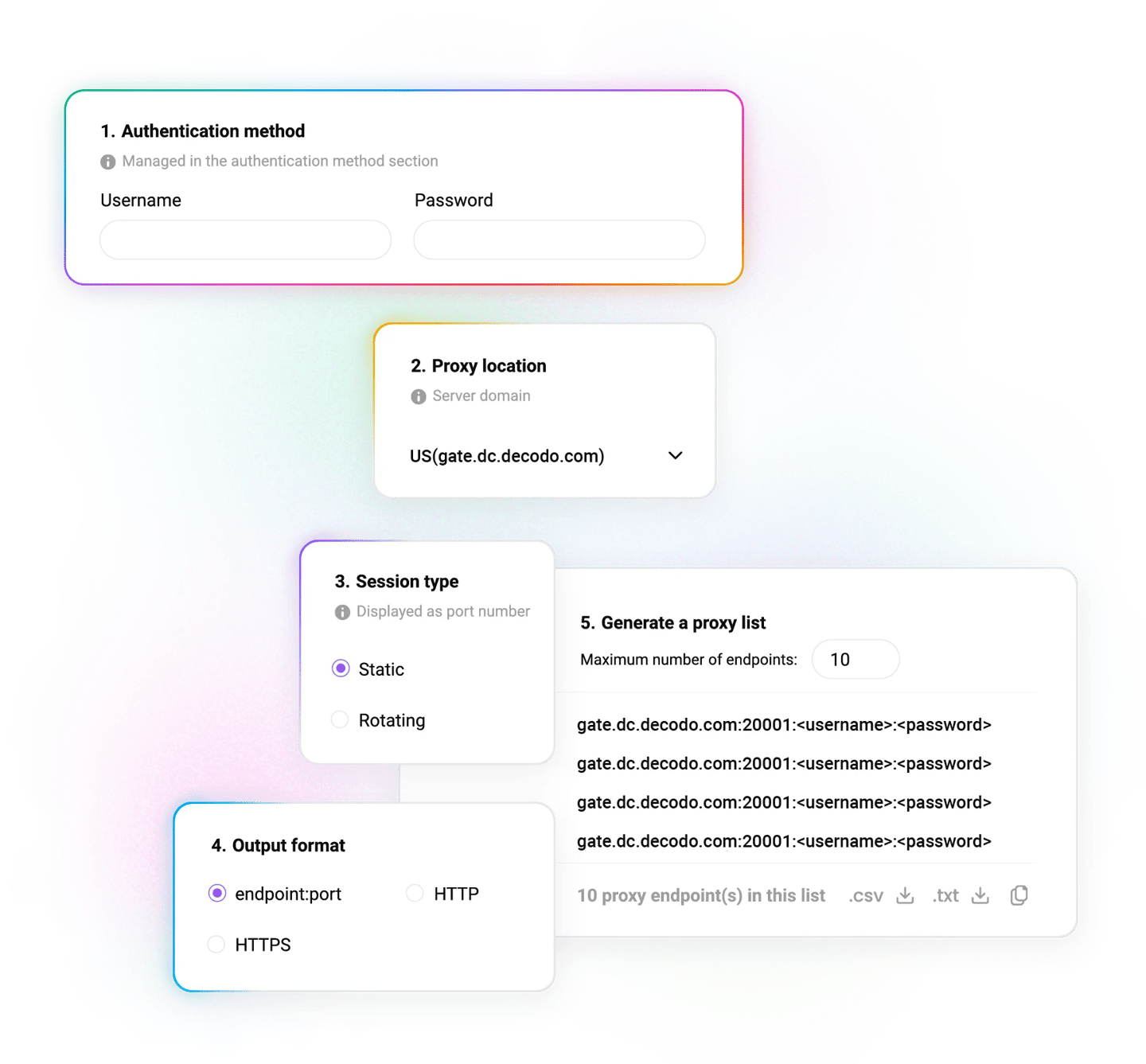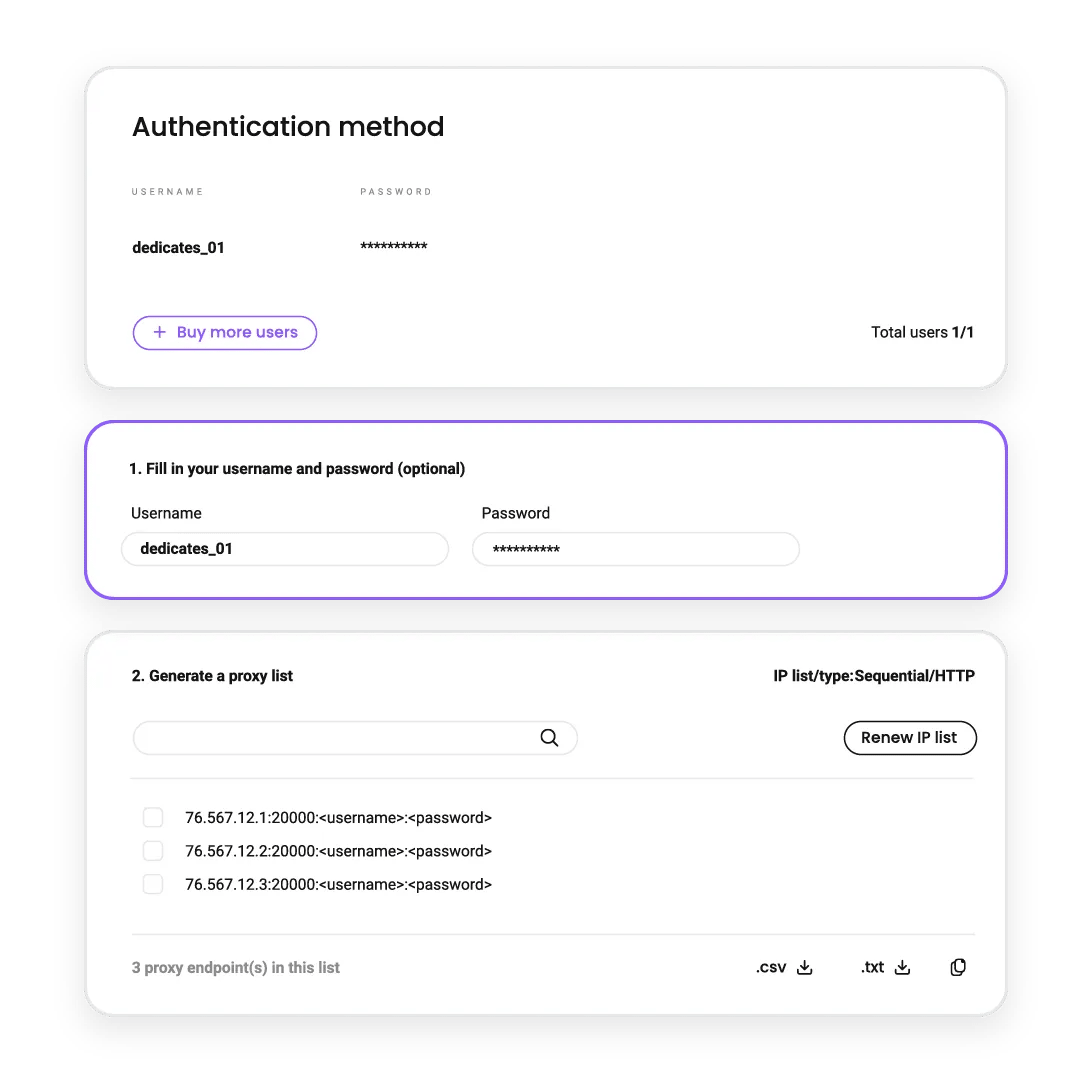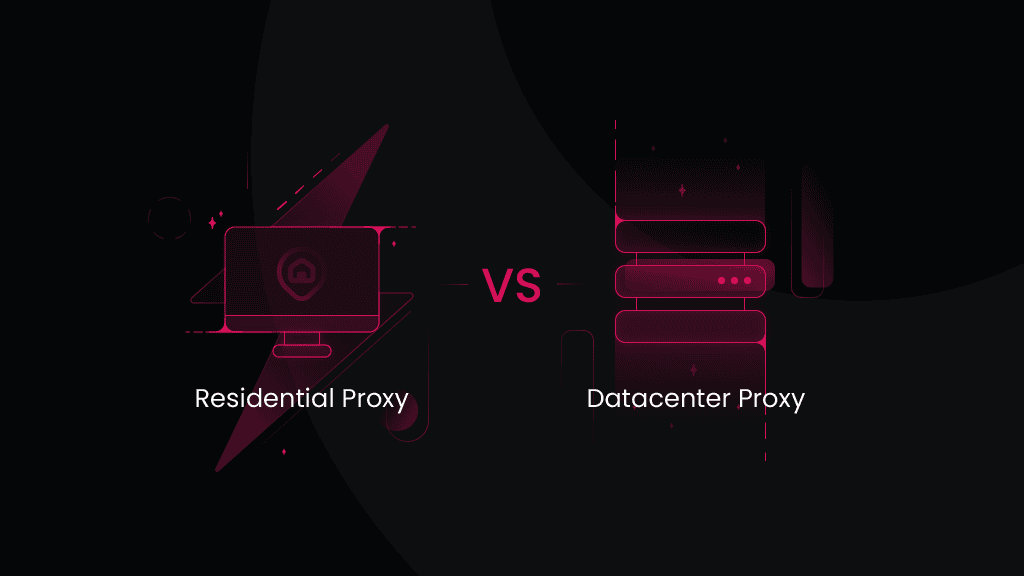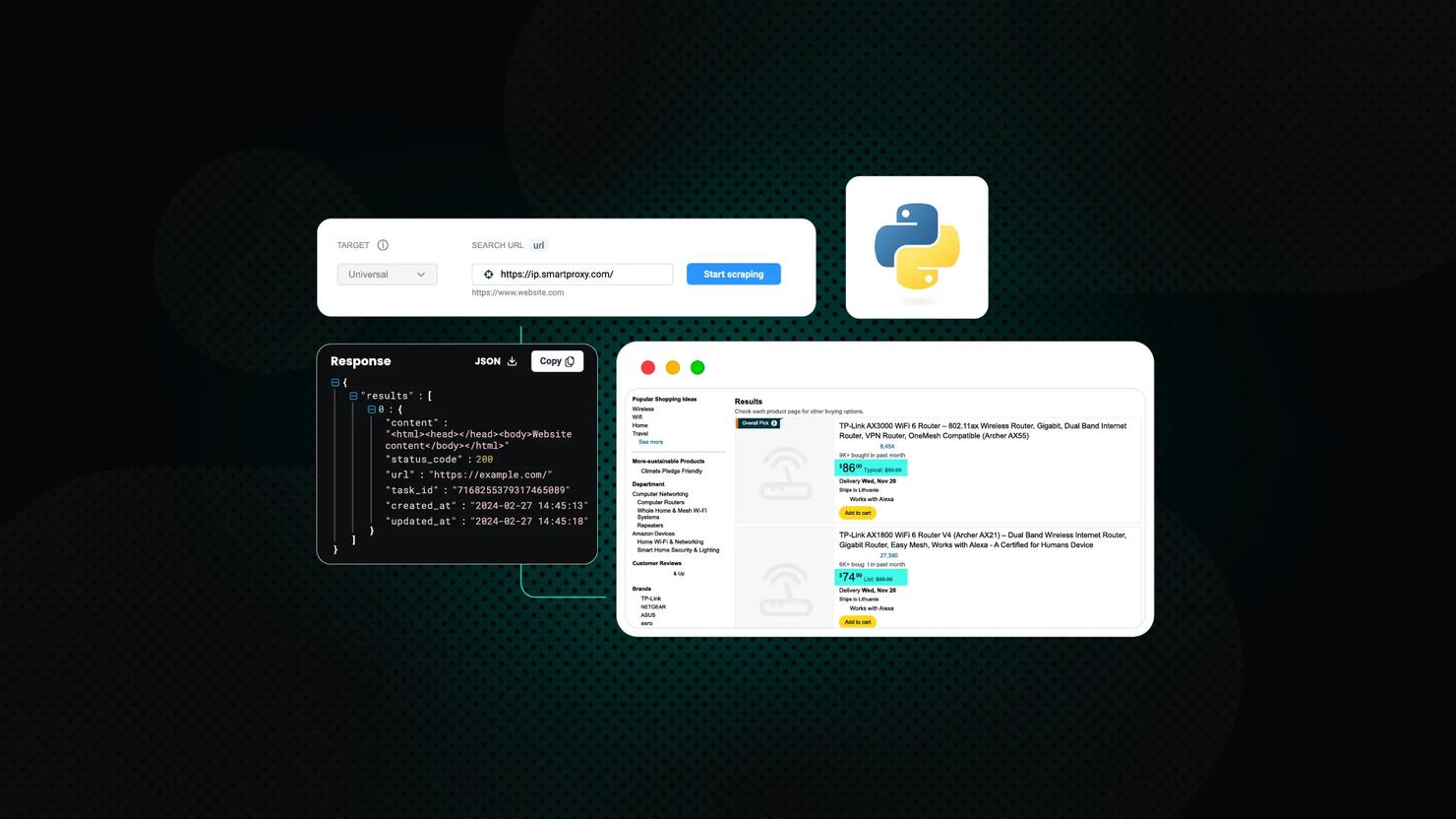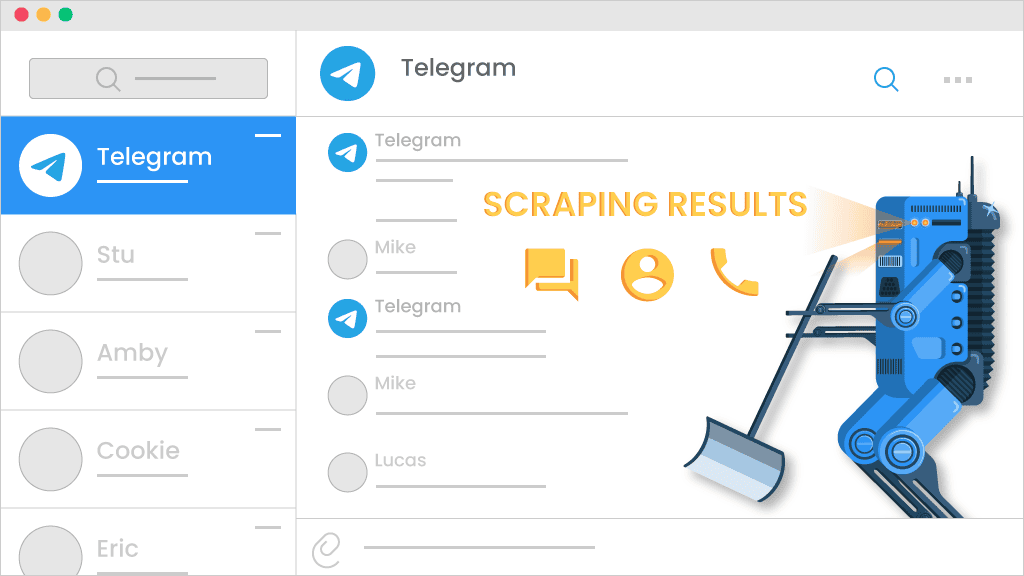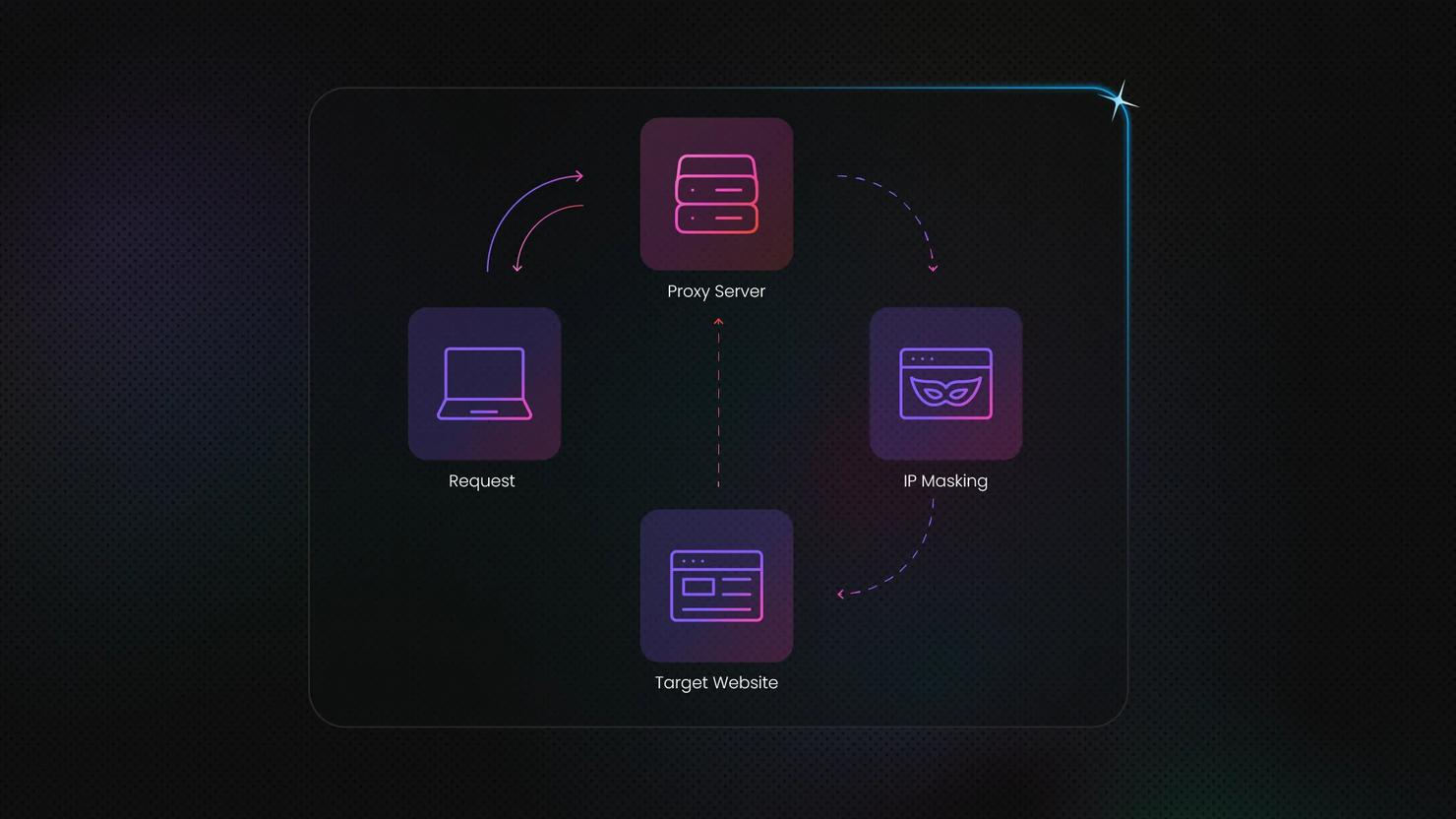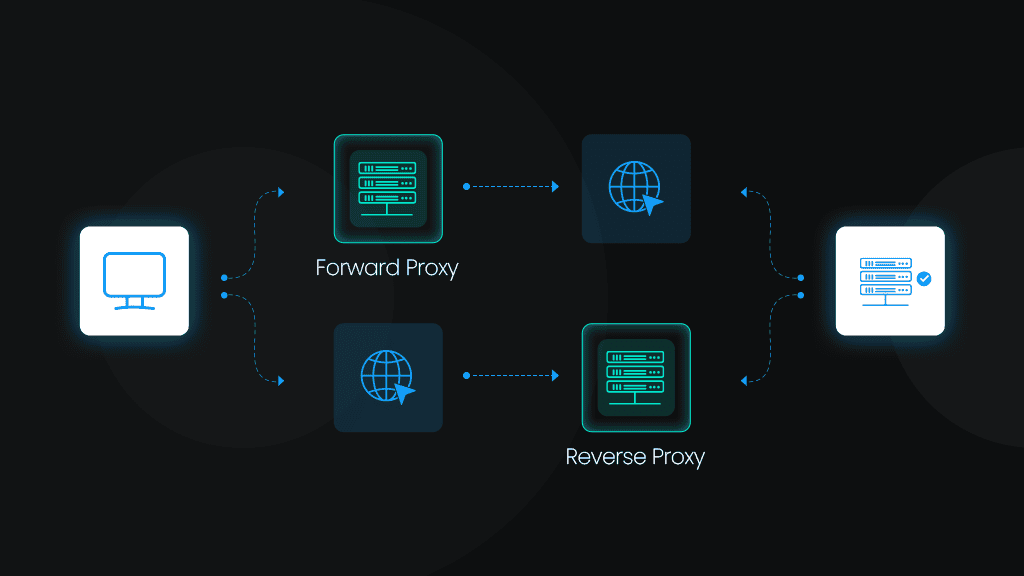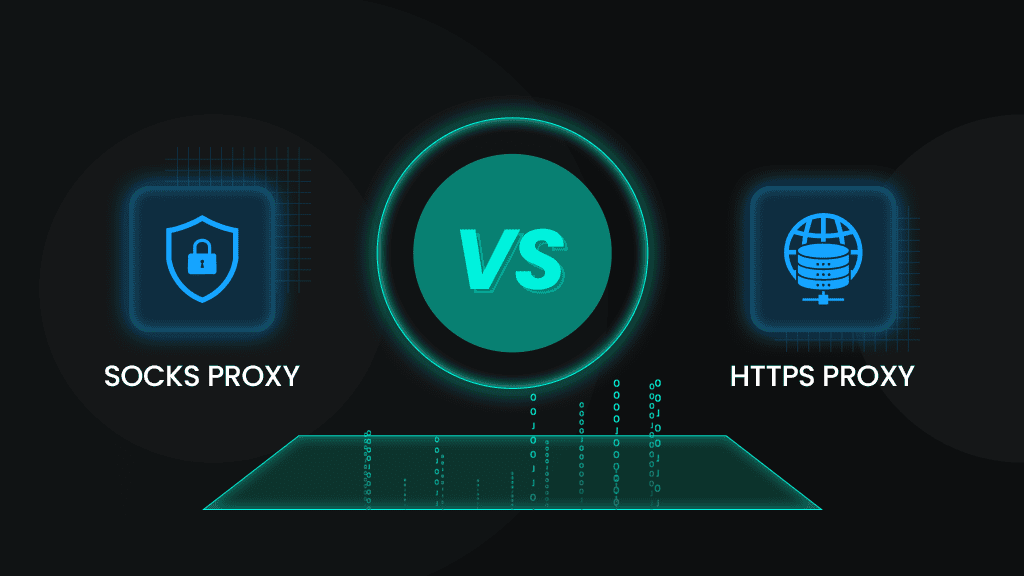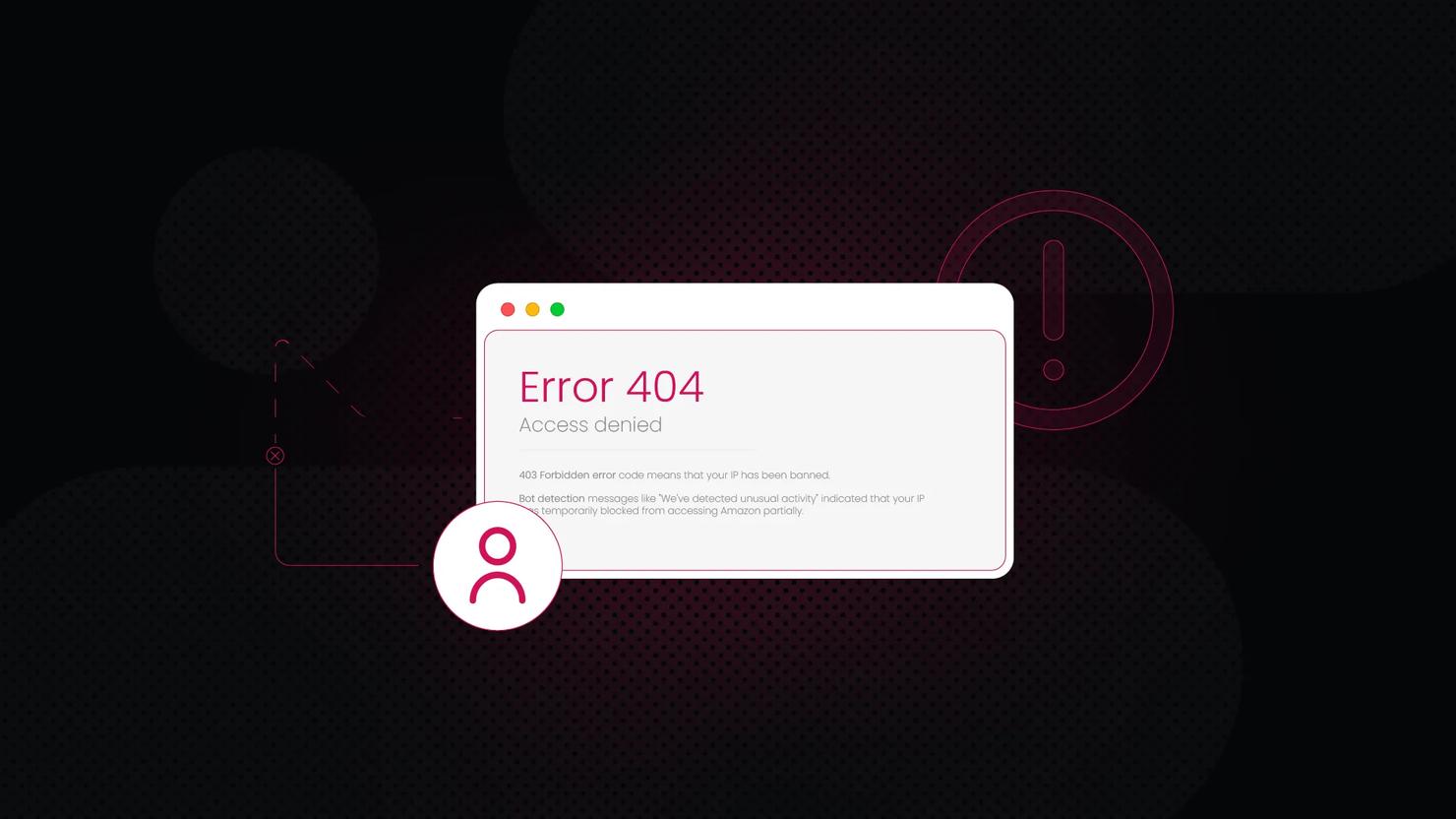Get Datacenter Proxies
Fuel your AI data operations with access to 500K+ global datacenter IPs. Seamlessly collect the data you need for AI workflows, SEO research, and web scraping. All free from CAPTCHAs, geo-restrictions, or IP bans.
14-day money-back option
500K+
IPs worldwide
99.99%
uptime
<0.3s
response time
99.98%
success rate
∞
traffic option
Trusted by:
What are datacenter proxies?
Datacenter proxies are servers that provide unique IPs from various geographic locations, acting as intermediaries between you and the target site to mask personal data and skirt access restrictions. There are 2 main datacenter proxy types users can choose from.
Shared datacenter proxies
Access 100K+ rotating IPs for budget-friendly data collection that’s easy to automate.
Dedicated datacenter proxies
Reserve exclusive IPs for consistent identity and session-sensitive workflows.
Why choose datacenter proxies for your data collection projects?
Leverage 500K+ datacenter proxies for fast, high-volume, and cost-effective data collection projects. Use them for various marketing tasks, SEO analysis, price monitoring, and AI pipeline automation.
Single proxy endpoint
Route all IPs via one endpoint to eliminate multiple proxy management and simplify deployment, monitoring, and maintenance.
Easy IP authentication
Choose between user:pass and IP whitelisting for quick integration into your scripts and bots.
Real-time statistics
Monitor traffic, requests, and success rates in real time for data-driven scaling.
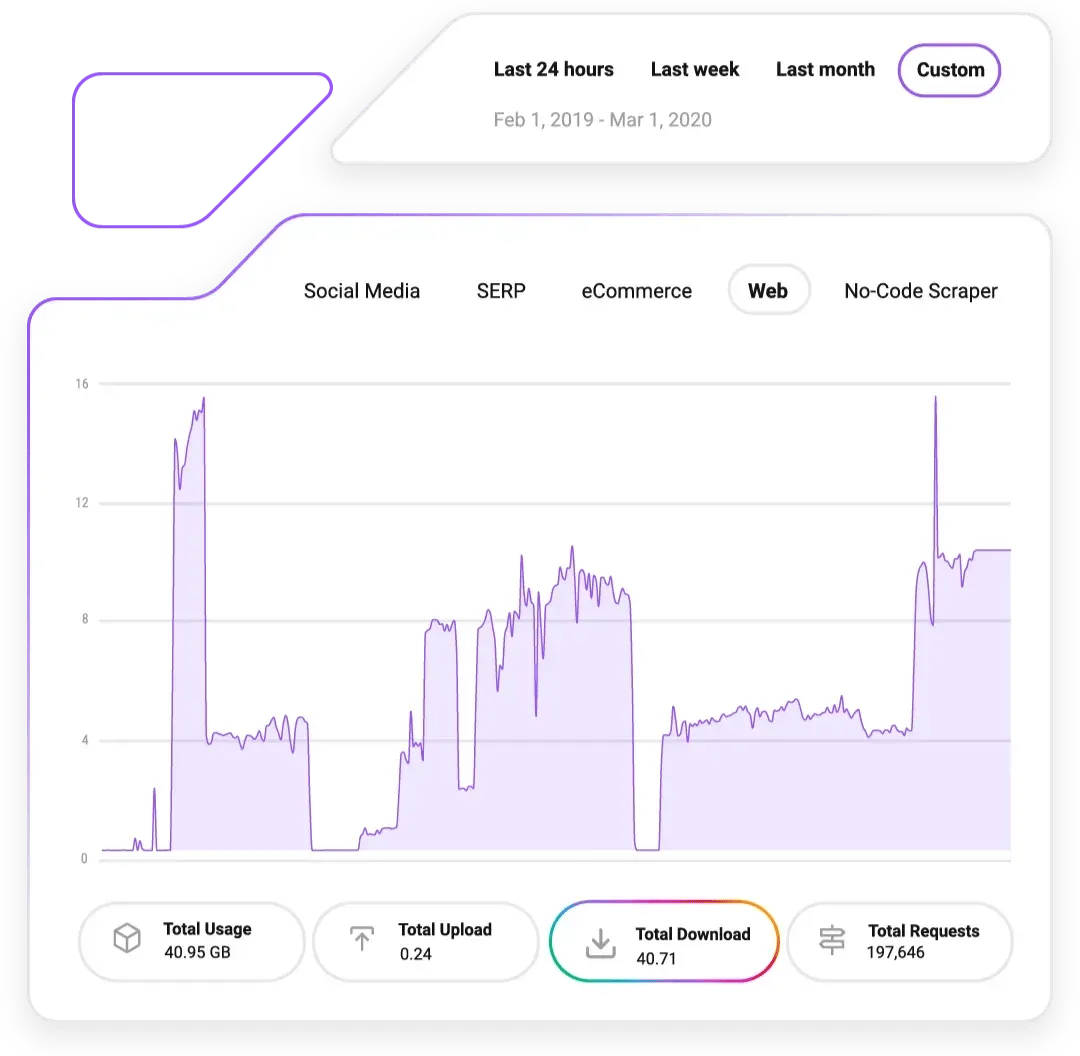
Why pay for datacenter proxies?
Whether you’re extracting data from websites, managing multiple accounts, training AI agents, or verifying ad placements, having trusted datacenter proxies is essential.
Free proxies are often unreliable, compromise data security, and slow down response times, delaying your data collection. Decodo’s datacenter proxies deliver the speed, reliability, and security you need, all at an affordable price.
Over 500K datacenter proxies are available
Choose from flexible pay-per-GB or pay-per-IP plans, and easily scale your data projects.
With each plan, you access:
<0.3s response time
100K+ rotating & static shared IPs
Global locations
99.99% uptime
Top download speed retention
Single endpoint for bulk operations
Compatible with all scraping libraries
HTTP(S) & SOCKS5 support
24/7 tech support
14-day money-back
SSL Secure Payment
Your information is protected by 256-bit SSL
Explore our datacenter proxy types
Pay-per-GB
Pay-per-IP
Dedicated
Type
Shared
Shared
Dedicated
Payment
Traffic (bandwidth)
Number of shared IPs and traffic (bandwidth)
Number of dedicated IPs
Best for
Lightweight, budget-friendly tasks like browsing, small-scale scraping, or anonymization.
Tasks that demand a static identity, like SEO rank tracking, ad verification, or market intel collection.
Projects that need a consistent fingerprint and unlimited traffic for multi-accounting and AI workflows.
Use cases
- Price comparison
- Market intelligence
- Ad verification
- SEO
- Cyber & brand security
- Multi-accounting
- Social media intelligence
- Entertainment & browsing
- AI training
- eCommerce marketplaces
- Cyber and brand security
- Ad verification
- Multi-accounting
Pool
100K+
100K+
400K+
Locations
- North and South Americas:
US, CA, BR - Europe:
UK, DE, IT, NL, RO, FR, TR - APAC:
IL, AU, JP, HK, CN, IN, KR, SG
- North and South Americas:
US, CA, BR - Europe:
UK, DE, IT, NL, RO, FR, TR - APAC:
IL, AU, JP, HK, CN, IN, KR, SG
United States
Protocols
HTTP(S) and SOCKS5
HTTP(S) and SOCKS5
HTTP(S) and SOCKS5
IP refresh
IP replacement
Speed
High
High
Highest
Rotation
Static and rotating
Static and rotating
Static
Choose datacenter proxies for your specific data collection needs
Power your eCommerce, marketing, and other data projects with our fast and efficient datacenter proxies.
Web scraping
Collect structured data at scale for research, pricing, or competitive analysis. Learn more
Find the Decodo products that best fit your needs
Explore our products and compare them to find the right solution for all your data projects.
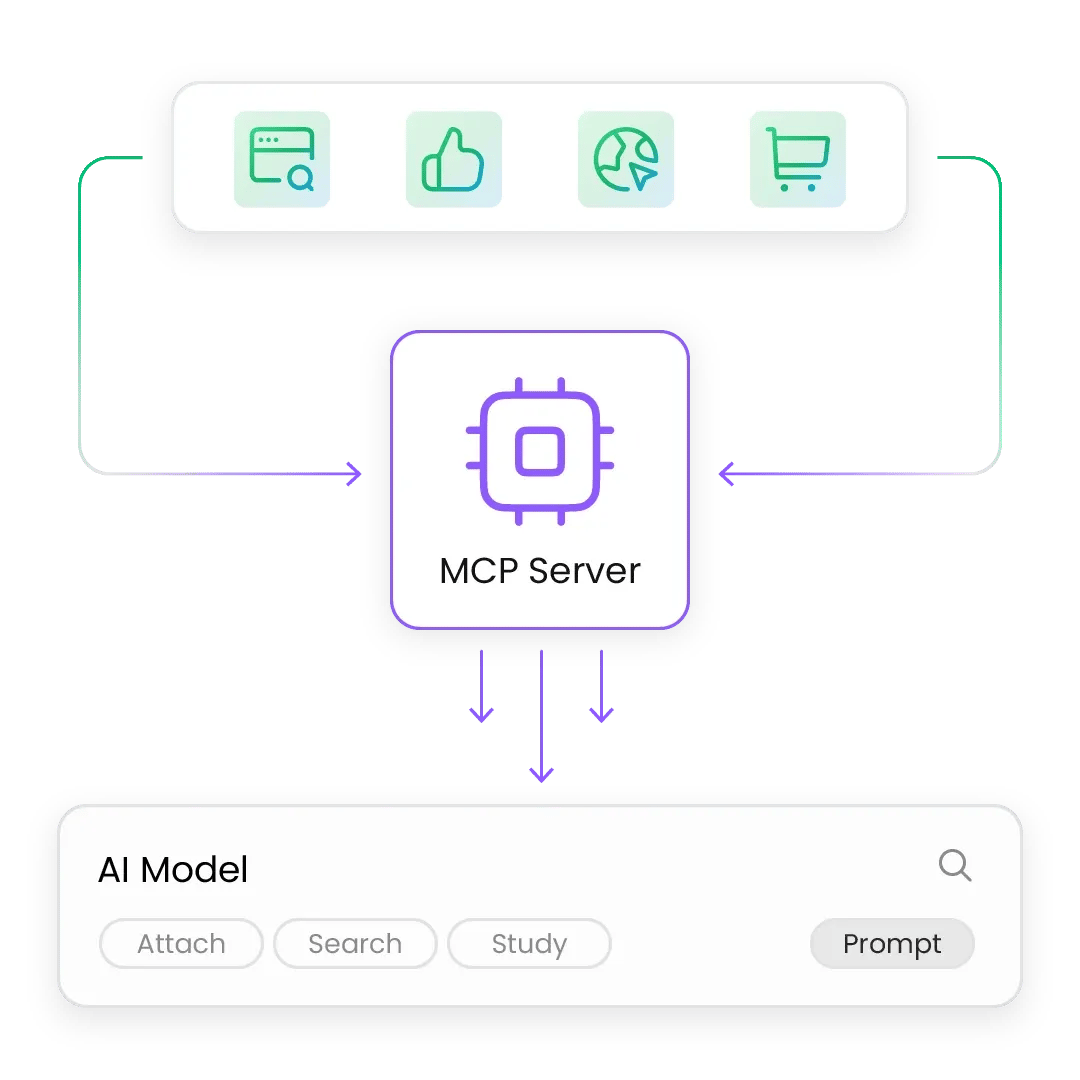
Build AI-ready pipelines with datacenter proxies
Collect data at scale for your AI solutions using high-speed datacenter proxies. Scrape public datasets, train LLMs, or power automation workflows that demand speed and volume.
Our AI Parser, n8n node, and MCP server are here to handle your data scraping projects:
- High-speed data collection for bulk datasets
- Budget-friendly at scale – great for AI pretraining
- Unlimited concurrent requests for parallel jobs
- Integrates directly with Requests, Playwright, Puppeteer
Discover datacenter proxy locations across the globe
Bypass geo-restrictions with country, region, and even ZIP code level precision using our shared or dedicated datacenter proxies.
Launch your data projects in minutes
Set up datacenter proxies using Python Requests, Playwright, Puppeteer, or cURL in minutes with our quick-start guides and code examples.
Datacenter vs. residential proxies: What’s the difference?
Feature
Datacenter proxies
Residential proxies
Speed
Very fast
Fast
Cost
Low
Moderate
Detection risk
Moderate
Very low
Best for
Ideal for fast, cost-effective tasks such as casual browsing, minor data scraping, or simple online anonymity.
Perfect for high-stakes tasks requiring authenticity, like large-scale web scraping, geo-targeted research, ad verification, or accessing location-restricted content.
IP pool size
Large
Very large
Geo-targeting
Global coverage
195+ countries
Use datacenter proxies when speed and cost matter most for scraping public data, SEO monitoring, and price aggregation. Switch to residential proxies for sites with advanced anti-bot detection.
See why people choose Decodo
Join 135K+ clients who rely on our award-winning proxy solutions.
Attentive service
The professional expertise of the Decodo solution has significantly boosted our business growth while enhancing overall efficiency and effectiveness.
N
Novabeyond
Easy to get things done
Decodo provides great service with a simple setup and friendly support team.
R
RoiDynamic
A key to our work
Decodo enables us to develop and test applications in varied environments while supporting precise data collection for research and audience profiling.
C
Cybereg
Get started with our datacenter proxies
See how to get datacenter proxies up and running in minutes in our setup video.
Set up datacenter proxies that access top targets
Collect data from the most popular eCommerce platforms, search engines, social media, and other targets with our datacenter proxies.

Amazon


TikTok
Power datacenter proxies with plug-and-play integrations
Easily connect your proxies with popular web scrapers, bots, libraries, and other third-party tools.
Read our blog
Get up to speed on our solutions or find inspiration for your next data project.
Most recent

Digital Squatting Is Becoming a Big Problem for Brands Worldwide
In 2025, the World Intellectual Property Organization (WIPO) handled a record 6.2K domain name disputes, marking the highest total in the organization's history. This figure represents a continuation of the alarming upward trend, with cybersquatting cases rising 68% since the 2020 pandemic. Domain squatting has evolved far beyond a simple trademark nuisance. Today, criminal networks register fake domains to steal customer data, distribute malware, and destroy brand reputations built over decades.
The threat affects businesses of all sizes, from Fortune 500 companies to growing startups. When scammers clone your website and domain, most customers can't tell the difference. They hand over their money, receive nothing in return, and blame your legitimate business for the experience.
This problem has become personal for Decodo (formerly Smartproxy), a leading web data infrastructure provider serving over 135K+ users worldwide. Impersonators have registered lookalike domains to deceive customers and tarnish the company's reputation. The Decodo case offers important lessons for any business online.
Benediktas Kazlauskas
Last updated: Jan 27, 2026
8 min read
Frequently asked questions
What are datacenter proxies?
Datacenter proxies are intermediaries between users and websites that have dedicated or shared IP addresses generated and hosted in data centers. They offer high-speed, low-latency performance at a cost-effective price point. Developers and data teams often choose datacenter proxies for various monitoring tasks, market research, and high-volume web scraping projects.
How do shared datacenter proxies work?
Shared datacenter proxies route your traffic through datacenter servers and assign IP addresses that multiple users access. This makes them more affordable, but the shared use can lead to performance fluctuations or a higher risk of bans if others overuse the same IP pool.
What’s the difference between pay-per-IP and pay-per-GB pricing?
Pay-per-IP pricing charges you based on the number of IP addresses you get, regardless of how much data you transfer through them. Pay-per-GB pricing, on the other hand, bills you according to the amount of data you consume, regardless of the number of IPs. Pay-per-IP is often better for tasks requiring consistent access from multiple locations, while pay-per-GB is ideal for large-scale data extraction or intermittent usage. Choosing the right model depends on your project’s scale, frequency, and use case.
Are datacenter proxies good for AI projects?
Yes, datacenter proxies work great for fast, large-scale scraping of public data like SERPs, product catalogs, or content feeds for AI training.
How do private datacenter proxies work?
Private (dedicated) datacenter proxies route traffic through datacenter servers, but, unlike shared proxies, each IP address is reserved for a single user. This ensures greater stability, faster speeds, and lower block rates, making them ideal for projects that require reliable and uninterrupted access.
What is the difference between dedicated and shared datacenter proxies?
Dedicated datacenter proxies are reserved for a single user, offering exclusive IP control, higher reliability, and consistent performance. Shared datacenter proxies are used by multiple users, making them more budget-friendly, but with a bigger risk of blocks and performance drops.
Power Your Data Projects with Datacenter Proxies
Run fast, budget-friendly scrapes and automate workflows at scale with Decodo’s datacenter proxies.
14-day money-back option
